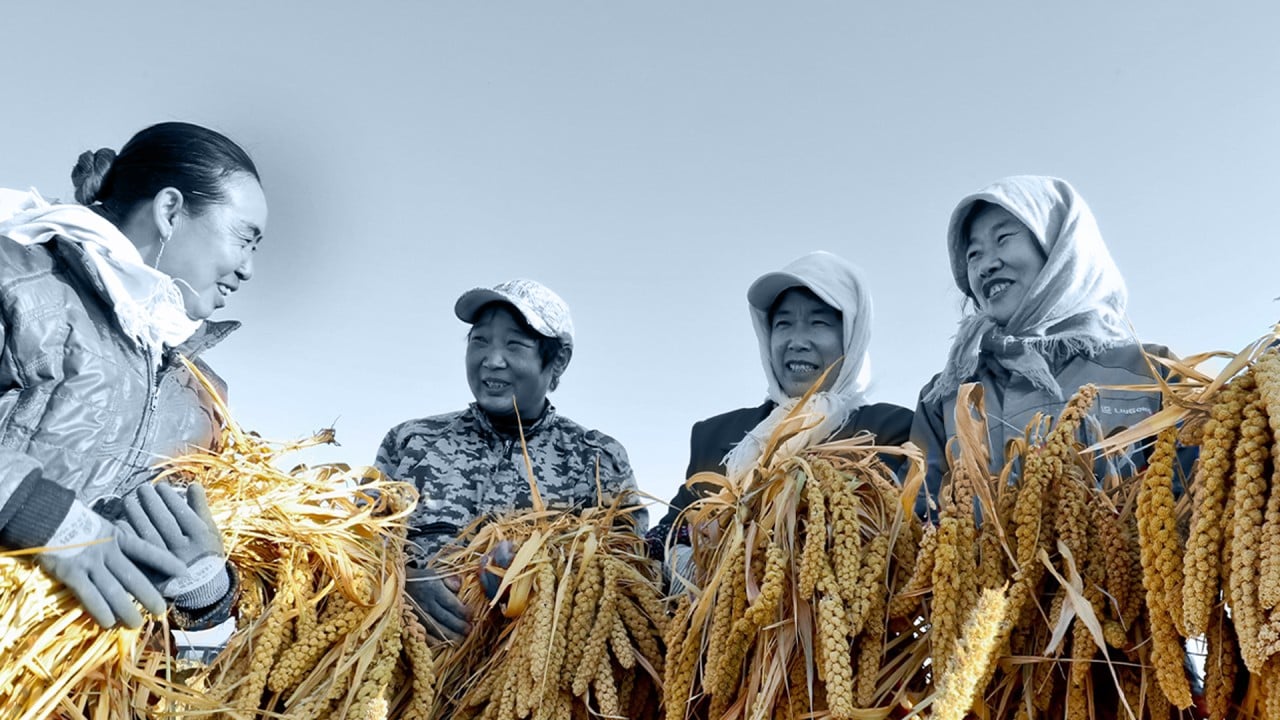There is also a video of Yanshi city, in Henan province in central China, asking local farmers to become trained and certified for their agricultural skills, such as spraying insecticides.
These videos, many now censored and removed from websites and social media platforms, received thousands of comments by Chinese internet users, calling the actions of rural management personnel “ridiculous” and overly intrusive on Chinese farmers who breed free-range chicken for better tasting produce and growers who prefer to be more relaxed about where they plant crops or hang their laundry within their own compounds.
A procurement list by a rural enforcement force enhanced community suspicion.
According to an equipment procurement list circulating online at the end of April, Tibet’s Nyingchi prefecture agricultural and rural bureau ordered law enforcement equipment similar to that used by police. In addition to walkie-talkies and on-site law enforcement recorders, the list included night-vision goggles, signal jammers, stab-proof vests and stun batons.
Many Chinese internet users question the need to equip an agriculture enforcement team with potent equipment such as stun batons.
“I can understand why riot police need this gear, but why do rural management teams need them too? What are they going to do to the farmers?” asked one Weibo user with the nickname Qian Shui de Yu (Diving Fish).
Some also questioned the necessity to test the farmers on their farming skills. “My grandpa, who spent his whole life ploughing the field, might fail the tests,” posted a Weibo user with the pseudonym Best Tractor in Town.
The serious concerns over rural law enforcement units reflect a deep-seated fear among the Chinese people regarding law enforcement at the grass-roots level after three years of draconian Covid-19 controls, according to Alfred Wu, an associate professor at the Lee Kuan Yew School of Public Policy at the National University of Singapore.
“The Chinese people have seen how the grass-root units became so powerful during the Covid-19 lockdown. A security guard can decide if you can leave your compound,” he said.
Wu said China must address the fear of local administrations operating beyond their permitted boundaries to cause harm to farmers’ lives, or such law enforcement units might become a source of instability.
“People in the rural and urban areas are different. Some rural areas have deeply rooted traditional values and ways of life. Many in the rural areas are very tough people.
“The rural management team has to be careful when enforcing the laws and regulations. If it just bulldozes blindly, it may result in the rural people, who often live within a big extended family, [fighting] back.”
Another factor not helping the image of the new rural law enforcement team is their uniform which is the same as China’s urban management force, widely known as chengguan.
Chengguan are installed in almost every city in mainland China. They mostly clamp down on illegal street vendors but also enforce rules on city sanitation, landscaping and parking. Chengguan officers have often been criticised and accused of using bullying tactics in incidents resulting in injury, and sometimes death.
According to a State Council decision in 2019, China’s five administrative law enforcement teams – ecological and environmental protection, transport, agriculture, cultural markets and market supervision – wear the same uniform, with only their armbands distinguishing the different branches.
Facing strong negative sentiment on its newly reassembled law enforcement team, the agriculture ministry and its mouthpiece, the Farmer’s Daily, soon weighed in.
On April 15, the ministry said intrusive actions – including banning planting vegetables around farmers’ compounds and prohibiting farming free-range chickens and ducks in villages – were “not within the job scope” of the local rural management law enforcement teams.
The Farmer’s Daily clarified a week later that apart from specific occupations – such as tractor and combine harvester operators – Chinese farmers did not need certificates to farm, and certifying farming skills was also not within the job scope of the rural management units.
It said some localities issued professional farmer certificates to encourage farmers to take up new technologies and skills, but those certificates were not “licences” for farming.
Addressing public concern over the budget to run the massive law enforcement operation, Farmer’s Daily said the team was not “newly created”, but “an optimised combination” of existing teams without additional resources or personnel.
Beijing’s Institutional Reform Plan has aimed since 2018 to combine law enforcement teams overseeing veterinary practices, slaughterhouses, seeds, chemical fertilisers, pesticides, agricultural machinery and agricultural product quality into one body under the Ministry of Agriculture and Rural Affairs (MARA).
The formation of one unified rural law enforcement force was reviewed and approved by a MARA executive meeting in November and came into effect on January 1. Beijing said the municipal and county-level rural management teams were set up by the end of last year.



